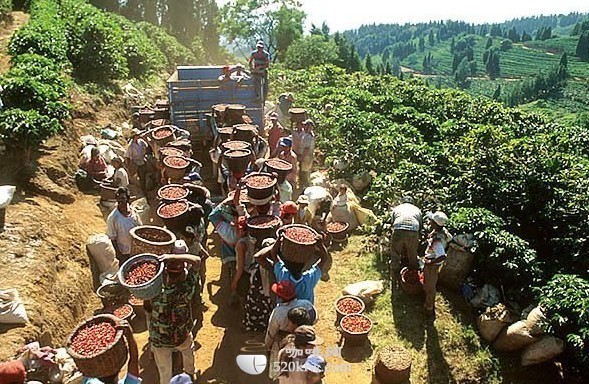Huge Investment opportunities for Coffee in China

From the perspective of diet, there are some things to be thankful for in China. According to a recent report by Barclays, China's food consumption pattern is close to the level of developed countries from two different angles. First, China's per capita calorie intake has surpassed that of Japan since the late 1990s. Although the current level is still lower than that of South Korea, the gap continues to narrow. The significant increase in calorie intake was particularly pronounced between 1990 and 1997, and although growth has slowed since then, the upward trend continues.
Of course, calories are just an indicator of a country's diet and economic development. In the United States, for example, many obese people also suffer from malnutrition because they consume high calories but contain only high sugars or simple carbohydrates, that is, unnutritious "junk food". Therefore, the composition of calories is also a factor to be taken into account.
From this point of view, China also has something to be happy about. Protein accounts for an average of 12% of the daily calorie intake of the Chinese, the same as 12% in developed countries and slightly higher than 11% in developing countries. Carbohydrates accounted for 61 per cent, higher than 53 per cent in developed countries, but lower than 67 per cent in developing countries. Fat accounts for 27% of China's daily calorie intake, which is lower than 34% in developed countries, but higher than 23% in developing countries. These statistics show that China's food consumption pattern is closer to that of developed countries than developing countries in general. As per capita income continues to rise, the proportion of fat is likely to continue to rise and carbohydrates may decline in the coming years. Perhaps as their income increases, Chinese people will eat less traditional rice and noodles.
One of the most interesting developments in China's eating habits is the sharp increase in coffee sales in recent years. This is partly due to the presence and promotion of overseas coffee chains such as Starbucks in the United States. Many Chinese who drink tea traditionally have been quickly poisoned by coffee. Coffee currently ranks alongside gold, aluminum, diesel, gasoline, nuclear power, nickel, hydropower and natural gas as the fastest growing commodity in consumption and usage in China. Coffee is the only food in this "super-growth" category. Chinese tastes are revolutionizing, which undoubtedly has a lot to do with the increase in disposable income, and this taste innovation may also turn coffee into the world's "new gold".
In addition to coffee, beef is also a commodity with strong demand growth in China. Beef, along with silver, crude oil, palladium, coal, lead and cotton, is the second highest commodity group in terms of usage and usage. The popularity and demand for beef and coffee seems to indicate that the Chinese diet, for better or worse, is becoming more and more westernized. While beef and coffee sales are growing rapidly, the growth rate of consumption of soybeans and corn has declined.
Sugar and poultry, on the other hand, showed the largest decline in usage and growth. Perhaps as China falls in love with the new taste of coffee, the traditional soybean milk is gradually falling out of favor. This is ironic because soy milk is becoming more and more popular in the West, and it has been used by many people as a substitute for dairy products over the past decade, providing an option for those who are increasingly sensitive to milk. It seems that East and West are exchanging and mastering each other's eating habits. Globalization is creating some interesting eating habits updates and revolutions.
As long as obesity does not become a social problem, the increasing intake of calories and fat by Chinese people is a good trend for the population and the economy. As there is still a gap in per capita calorie intake between China and South Korea, China can breathe a sigh of relief. The question is whether high calorie intake is concentrated in some areas, as this may mean that obesity can be a problem in some areas.) As dietary consumption is close to the level of developed countries in terms of calorie intake and distribution, many agricultural products are likely to experience a slowdown. However, as China's disposable income is still rising, other consumer categories, including household equipment, transportation and entertainment, will benefit from "fat water". It is not surprising that coffee, diesel and gasoline all enjoy the highest growth rates of demand at the same time. Even in China, where food is the most important thing for the people, only a limited amount of food can be consumed.
Important Notice :
前街咖啡 FrontStreet Coffee has moved to new addredd:
FrontStreet Coffee Address: 315,Donghua East Road,GuangZhou
Tel:020 38364473
- Prev

How dependent is Starbucks on China?
In fact, although these multinationals are expanding at an alarming rate in China, China is still a relatively small market in terms of their sales in China as a share of their total global sales, which depends on whether customers stay in stores for too long. Maybe it doesn't have much to do with it.
- Next

Women perform better than men in stressful environments when drinking coffee.
Get up every morning and have a cup of coffee to cheer you up at work, and people who want to concentrate will also have a cup of coffee at work.
Related
- What is the difference between Indonesian Sumatra Mantinin coffee and gold Mantinin? How to distinguish between real and fake golden Mantelin coffee?
- What does bypass mean in coffee? Why can hand-brewed coffee and water make it better?
- Unexpected! Ruixing Telunsu lattes use a smoothie machine to foam milk?!
- % Arabia's first store in Henan opens into the village?! Netizen: Thought it was P's
- Does an authentic standard mocha coffee recipe use chocolate sauce or powder? Mocha Latte/Dirty Coffee/Salty Mocha Coffee Recipe Share!
- What is the difference between Vietnam egg coffee and Norway egg coffee? Hand-brewed single product coffee filter paper filter cloth filter flat solution!
- What is the difference between sun-cured and honey-treated coffee? What are the differences in the flavor characteristics of sun-honey coffee?
- How to make Italian latte! How much milk does a standard latte use/what should the ratio of coffee to milk be?
- How to make butter American/butter latte/butter Dirty coffee? Is hand-brewed coffee good with butter?
- Is Dirty the cold version of Australian White? What is the difference between dirty coffee/decent coffee and Australian white espresso?

